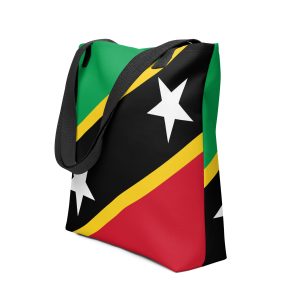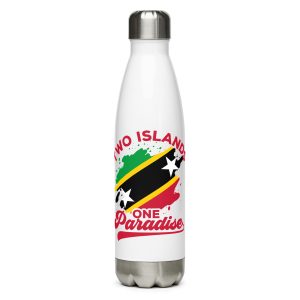1932 Founding of the St. Kitts Workers’ League
The founding of the St. Kitts Workers’ League in 1932 was a turning point in the social and political history of St. Kitts and Nevis. Formed to address the struggles of the working class, particularly in the sugar industry, the League became a key force for labor rights and political reform. It eventually evolved into the St. Kitts-Nevis Labour Party, shaping the islands’ future.
Origins and Formation
The St. Kitts Workers’ League emerged in response to the harsh economic conditions faced by sugar workers. During the early 20th century, sugar production dominated the economy, with the majority of the population working in this sector. Despite their central role, laborers faced poor working conditions, low wages, and exploitation by plantation owners.
The League was inspired by labor movements across the Caribbean, particularly in Trinidad and Jamaica, where workers were organizing for better wages and rights. St. Kitts workers, frustrated by high unemployment and low pay, began to push for change. The League gave them a platform to demand better treatment and challenge the entrenched power of the landowning elites .
Leadership and Early Goals
Thomas Manchester, a committed labor organizer, led the St. Kitts Workers’ League in its early years. Under his leadership, the League focused on securing higher wages, better working hours, and improved conditions for sugar workers. Through strikes and negotiations, the League forced employers to address the needs of the labor force, helping to raise awareness of workers’ rights across the island .
These early efforts helped the working class, particularly those in rural areas, become more politically active. For many, the League represented their first opportunity to participate in political processes and demand reforms that benefited them directly.
Political Growth and Legacy
As the St. Kitts Workers’ League grew, it shifted from focusing solely on labor issues to demanding broader political reforms. Leaders like Robert Llewellyn Bradshaw, who would later become the island’s first Premier, helped transform the League into a powerful political organization. The League began advocating for universal suffrage, education reform, and greater political representation for the working class.
In 1966, the League officially became the St. Kitts-Nevis-Anguilla Labour Party, continuing its fight for the political empowerment of the people. Under Bradshaw’s leadership, the party played a central role in the islands’ journey to self-government and eventual independence. The Workers’ League’s transformation into a political party ensured that labor issues remained at the forefront of political discussions .
Impact on Workers’ Rights and Political Development
The founding of the St. Kitts Workers’ League laid the groundwork for democratic governance on the islands. Through its advocacy for labor rights and political reforms, the League initiated changes that culminated in universal adult suffrage in 1952, granting voting rights to all adults in St. Kitts and Nevis. This major victory marked a shift towards greater political inclusion and representation for the working class .
The League’s evolution into a political party ensured that the interests of the working population were represented as the islands transitioned to independence, shaping St. Kitts and Nevis’ modern political landscape.
Conclusion
The St. Kitts Workers’ League, founded in 1932, played a crucial role in the development of St. Kitts and Nevis. By advocating for labor rights and pushing for political reform, the League became a driving force for change, ultimately transforming into the St. Kitts-Nevis Labour Party. Its legacy lives on today, as the party continues to influence the political landscape of the islands, a testament to the enduring impact of the Workers’ League’s early efforts.
Historical Overview of St. Kitts and Nevis
Colonial History
Significant Historical Events
Pre-Columbian Era
European Exploration and Colonization
- 1493 – Christopher Columbus’s Second Voyage
- 1623 – Establishment of the First European Settlement
- 1626 – Kalinago Massacre
Colonial Era
- 1650s – Expansion of Sugar Plantations
- 1666 – French Occupation of St. Kitts
- 1706 – Nevis Raid
- 1783 – Treaty of Paris
20th Century Developments
- 1932 – Founding of the St. Kitts Workers’ League
- 1952 – Universal Adult Suffrage
- 1967 – Associated Statehood
- 1978 – Death of Sir Robert Llewellyn Bradshaw
Independence and Modern Developments
- 1983 – Independence
- 1998 – Nevis Secession Referendum
- 2005 – Hurricane Impact
- 2015 – Team Unity Government
Disclaimer
The information provided on stkittsnevisflag.com is for general informational purposes only. While we strive to provide accurate and up-to-date information, we make no warranties or representations of any kind, express or implied, about the completeness, accuracy, reliability, suitability, or availability of the information contained on this website. Any reliance you place on such information is therefore strictly at your own risk.
stkittsnevisflag.com will not be liable for any loss or damage, including without limitation, indirect or consequential loss or damage, or any loss or damage whatsoever arising from loss of data or profits arising out of, or in connection with, the use of this website.
We encourage all users to verify any information found on this site before relying on it. If you find any incorrect or outdated information, please contact us at info@stkittsflag.com so we can make the necessary corrections.




